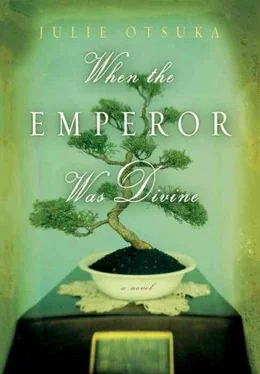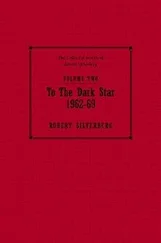We carried our dusty suitcases up the narrow gravel path. It was late in the day and a cool breeze was blowing in off the bay and in the yard of the house next door a man in his shirt sleeves was slowly raking leaves. We did not know him. He was not the same man who had lived in that house before the war. He leaned on his rake and nodded once in our direction but our mother did not wave to him or nod her head, even slightly, in return. There were many people, she had warned us, who would not be happy to learn we had come back into town. Perhaps this man was one of these people—a member of the American Legion, or the Homefront Commandos, or one of the Native Sons of the Golden West—or perhaps he was simply a man with a rake our mother had chosen not to see, we did not know.
At the top of the porch steps she reached into her blouse and pulled out the key to the front door, which she had worn, on a long silver chain, the entire time we had been away. Every morning, in the place where we had lived during the war, she had reached for the key as soon as she woke, just to make sure it was still there. And every evening, before she closed her eyes, she had touched the key one last time. Sometimes, in the middle of the day, she had stroked its jagged ridges with her thumb as she stared out the barrack window. Once, when she thought no one was looking, we even saw her put it into her mouth and close her eyes with delight. It was spring, and the air smelled of sage, and she was reading a letter from our father. We turned our heads away. The key had become a part of her. It was always there, a small, dark shape, dangling—visibly and sometimes invisibly, depending on the light, and what she was wearing, and even, at times, it seemed, on her mood—just beneath the surface of her clothes. If she took it off, surely terrible things would happen. Our house—that faraway speck on the map—would fall down, or go up in flames, or simply disappear. The war would last forever. Our mother would cease to be.
But now we watched as she pulled the chain up over her head—she did this effortlessly, naturally, as though it were something she did every day—and slid the key into the lock. Her hands were steady. Her fingers did not tremble. The wind was blowing through the branches of the trees and in the yard next door a man we did not know was slowly raking leaves. Our mother had not waved to him. She turned the key once in the lock. She turned the key twice. We heard a click and then the door swung open and she took off her hat and stepped into the foyer and after three years and five months we were suddenly, finally, home.
THE HOUSE DID NOT smell good. We did not care. The paint was peeling away from the walls and the window frames were black with rot. Shreds of lace curtain dangled in front of the soot-covered panes and the floor was littered with empty food tins and shards of broken glass. Against the far wall where the piano had once stood we saw our mother’s felt-covered card table beneath a pile of old newspapers. Nearby, in the corner, three folding chairs. A metal stool. A broken gooseneck lamp. The rest of our furniture was gone. It did not matter. We were home. We were lucky to be home. Many of the people who had come back with us on the train had no homes to return to at all. Tonight they would be sleeping in hostels and churches and on cots at the YMCA.
We put down our things and ran from one room to the next shouting out, “Fire! Help! Wolf!” simply because we could. We flung open the windows and doors. The smell of the sea blew through the empty rooms of the house and soon the other smell, the smell of people we did not know (they drank milk, they ate butter, they ate cheese, all these things our mother claimed she could tell from their smell) began to fade away.
We had not smelled the sea in years.
In the kitchen we turned on the faucet and watched the water come pouring out of the pipes. At first the water was brown with rust and then it ran clear. We lowered our heads to the faucet and drank. Our throats were dry from the long ride back and our clothes were covered with dust. Our mother let the water run over her hands and then she turned off the faucet and wiped her hands on the front of her dress and walked out the back door and into the yard and stood on the tall weedy grass in the shade of the trees as the leaves fell all around her.
This was a strange and unfamiliar sight: our mother, in shade, beneath trees. We watched as she caught a falling leaf in her hand and held it up to the light. We watched as she let the leaf go. In the place we had come from there was sun but no shade and the only time we ever saw trees was at night, in our dreams.
MANY PEOPLE HAD LIVED in our house while we were away but we did not know who they were, or where they had gone, or why we had never received a single check in the mail from the man who had promised to rent out our house. This man was a lawyer, his name was Milt Parker, he had shown up at our door the day after the evacuation orders had been posted and offered our mother his services. “I’ll take care of everything,” Mr. Parker had said. But where was he now? And where was our money? And why had our mother been so quick to open the door to a stranger? Because strangers had knocked on our door before. And what had happened? Nothing good. Nothing good. They had taken our father away.
“Fool,” our mother said now, “I was a fool.”
Upstairs, in the rooms where we had once slept, and dreamed, and many times fought, we found soiled mattresses and old magazines filled with pictures of naked young men and women. Their bodies were perfect. Their skin, smooth and pale. Their limbs were wrapped around each other in ways we did not yet know were possible. “You’ll know soon enough,” we heard our mother utter softly, under her breath, as she tossed the magazines aside, although later she would deny that this was true. (But it was true, she had said it, we would know.)
At the end of the hall, in the room where she had locked up our most valuable things—the View-Master, the Electrolux, our collection of old Dime Detectives , the wedding china that she had set out only on Sundays ( Why didn’t we use those dishes every day of the week? she would later ask)—there was hardly anything left at all. Empty boxes were scattered across the floor, and on top of the windowsill, lined up in a neat row, stood the remnants of some long-ago game of Monopoly: a pair of white dice, a tiny red hotel, the smallest green wooden house in the world.
Water had seeped through a crack in the ceiling and on the walls there were brown stains and words scrawled in red ink that made us turn away. “We will paint them over,” said our mother, and several months later, when we had money to buy paint, we did, but for years we could not get those words out of our heads.
THAT NIGHT, the night of our first day back in the world, the world from which we had earlier been sent away, we locked all the windows and doors and unrolled our blankets on the floor of the room at the foot of the stairs that looked out onto the street. Without thinking, we had sought out the room whose dimensions—long and narrow, with two windows on one end and a door at the other—most closely resembled those of the room in the barracks in the desert where we had lived during the war. Without thinking, we had configured ourselves exactly as we had in that long narrow room during the war: our mother in the far corner, away from the windows, the two of us lying head to toe along the wall on the opposite side of the room. Without thinking, we had chosen to sleep, together, in a room, with our mother, even though for more than three years we had been dreaming of the day when we could finally sleep, alone, in our own rooms, in our old house, our old white stucco house on the broad tree-lined street not far from the sea.
Читать дальше












